The links in this post may be affiliate links, where we can make money without any cost to you. Hopefully you enjoy our tale of living with a supertaster and get some ideas on how to navigate living with {and cooking for) a supertaster.

Until last month, I thought I had a picky eater. I have always been so proud of the fact that my girls are adventurous eaters and don’t ever require kid’s menus. They prefer vegetables, don’t have a problem with spicy foods, and both have very healthy diets that nutritionists would be thrilled with. My son, on the other hand, had always been considered incredibly picky.
He doesn’t even like foods that kids are supposed to prefer, like cakes, candy, and sugary drinks. In fact, this picture above was staged because he flat-out refused to try a s’more when we were camping and instead ate way too many graham crackers.
He just likes bland, typically non-nutritional, foods, and that drives me crazy. We used to fight at every meal as he would recoil if a minuscule piece of leafy greens got left on his food or he would pick apart a meal asking what each tiny thing was.
Making him lunches once he started school has been my least favorite daily chore because there are so few lunch foods he will eat. There are so many things that he won’t eat and the foods he will eat really aren’t that good for him, and they typically don’t travel to school well. 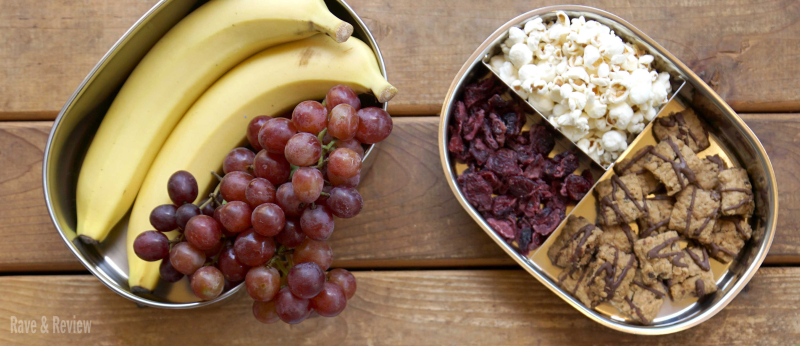
That’s back when we thought he was just a picky eater, and it was pretty rough.
But, I never thought that there might be a reason why he is so picky and unwilling to try new foods. My husband, however, had been doing research and thought we might have a supertaster on our hands.
Yeah, that’s right, we’ve been living with a supertaster.
So, hubby ordered up the tests and it turns out he was right. Me, the girls, and for the most part, hubby are all within the normal range, but our son is a supertaster.
A super – what?
Never heard of a supertaster before? Let me give you a little history: In a 1991 Yale Medical School study, Psychologist Linda Bartoshuk coined the terms supertaster, medium tasters, and non-tasters to categorize people by their sensitivity to bitter, sour, sweet, and salt.
In this research, they found the following general breakdown of the population as it relates to taste: 25% supertasters, 50% medium tasters and 25% non-tasters. Bartoshuk described the difference in this way, “Supertasters live in a ‘neon’ taste world, while others live in a ‘pastel’ world.”
Before you go thinking that supertasting would be an awesome super power that would lead to appreciation for fine foods and generally foodie-ness, let me tell you what life as a supertaster is like: it sucks. There are so many things my son can’t eat, and probably never will. There are so many events and get togethers where he can’t eat much of anything, including birthdays, work events, and more. Life as a supertaster’s mother means constantly planning ahead for this scenario and making sure he has healthy foods to eat.
Supertasters tend to eat fewer vegetables because of their bitter taste and they consume more sodium to mask the bitterness. In my son’s case, he prefers carbs to anything at all, and the less nutritional the better. But, that could be his age as well. Young boys aren’t exactly known for their adventurous diets.
But, on the positive side, supertasters have a reduced preference for sweet, high-fat foods. They are also less likely to smoke and they tend not to like alcohol, which is a definite plus for older supertasters. So, at least we have that to look forward to.
Need more proof that supertasters exist? Check out any online recipe, ever. Inevitably most of the people will be like “this recipe was great, my family loved it!” peppered with “this was awful – I couldn’t even finish one bite”. It also might explain why some people prefer Twizzlers over Red Vines, but that just might need a whole other scientific test for me to understand.
As a normal taster who cooks and packs lunches for a young supertaster, I’ve come up with some guidelines to help feed my son the healthiest I can. To help you mamas out who are also feeding a supertaster, I’m sharing with you not only foods to avoid but also ways to cope with situations where your supertaster might struggle.
I hope it helps leave you feeling less like a short order cook who has to make special foods for everyone, and helps keep the mealtime peace.
Foods to avoid:
Brussel sprouts
Broccoli
Cucumber
Hot, spicy foods
Leafy greens like kale, cilantro, and spinach
Green peppers
Green olives
Sugary cakes and treats
Dark chocolate
Creamy foods
Drinks to avoid:
Super sweet drinks
Tonic and seltzer water
Things to avoid for adult supertasters:
Black coffee
Hops-heavy beer
Unsweetened alcoholic beverages
Do you know a supertaster? Never fear, there are lots of things that you can do to help your supertaster get a more varied and nutritional diet… and take the battle out of mealtime.
Strategies for living with {and cooking for} a supertaster:
Encourage trying new foods.
We used to fight constantly to get our son to “just try it!” at each meal, and then when we found out he was a supertaster, we went the complete opposite way. But, then we realized he couldn’t thrive on Cheezits and chicken nuggets alone, and we decided to try and introduce foods on his terms.
We ordered these awesome Dinner Winner plates and would put new foods in each time. The competitive nature of our son outweighed his desire to never try new foods simply out of fear alone. We eventually got him to try numerous foods we had been thinking he might like but he had been refusing to even try. He didn’t love them all, but we did find quite a few he is now willing to eat and that’s a huge win for all of us. 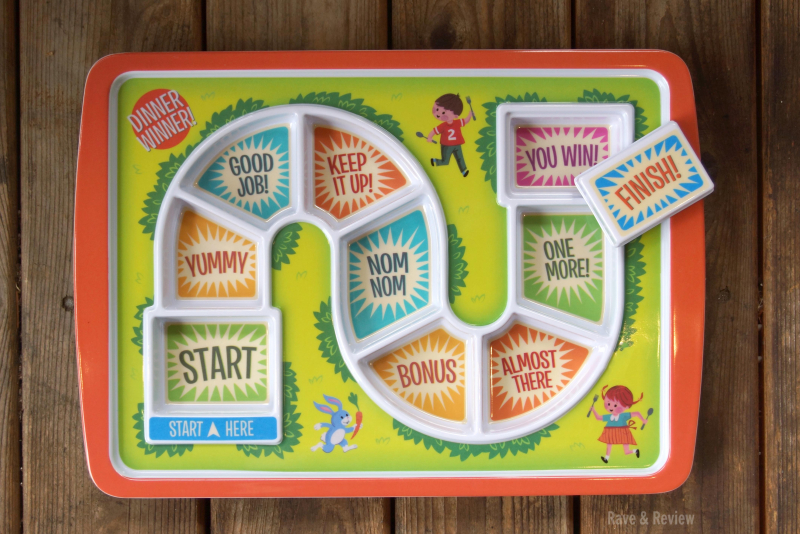
Do what you can to combat bitterness in foods.
Salt and seasoning can help mask bitterness, and cooking some vegetables makes them less bitter. If your child is now trying new foods, you can experiment until you find cooking methods and healthy sauces that make foods edible to them.
Steamed veggies are preferred over roasted here, so I will prepare most veggies this way if I can. If I can’t, I simply serve him another veggie he will eat as a substitute.
Pro tip: I never put sauces on top of his food, always on the side. That way, he can control the varied tastes and if he decides that one thing isn’t working for him, it doesn’t ruin the whole meal.
Don’t assume that because they like it once, they will always like it.
Lots of brands change their recipes without warning we found. We also found that sometimes seasonings are too strong even though they were fine the last time they were used. Sometimes he can even taste what foods were stored next to other foods he doesn’t like. Sometimes he just changes his mind on a food after having a bad reaction last time he tried it.
This is especially the case at restaurants where recipes can change with whatever cook is on duty. Know this going in, and it can make it less frustrating when your child now refuses to eat what once was their favorite foods. It helps that now he’s a bit older and can tell us exactly what is wrong with the foods as opposed to just refusing to eat. Honestly, everything has gotten easier as he’s gotten older and can communicate more, so there’s something to look forward to for mamas of really young supertasters.
Grow and make your own foods.
If you have a super picky eater that can detect the tiniest traces of bitterness, sometimes it’s easier to just make things from scratch. After we realized we had a supertaster, we switched to making more from scratch. We now make all of our own bread, grow what we can in our veggie garden so foods are fresh from the garden, and we modify recipes within reason to accommodate his tastes.
Yes, it’s more work. But, knowing he’s not eating garbage white bread {the only kind he would eat and typically his meal of choice} is so worth it to me. I’ve always loved growing things, so the only real problem there is when foods are out of season.
Keep a list of things your child will eat.
It can seem overwhelming when you start thinking about everything your child *won’t* eat, so I like to keep a list of foods my son *will* eat. He likes to add the new food to the list whenever we find something he enjoyed, and he’s excited about how the list is growing. The list now even includes healthy foods, vegetables, and some fruits. If you don’t already get it by now, that’s a big huge win.
Bring snacks.
Before I knew I was the mom of a supertaster, I always swore I wouldn’t be the mama who had to cart around snacks. But necessity won out. Now, I carry a small snack that I know my son will eat in my purse, in my car, and in the stroller for our days out. That way, I don’t get stuck paying way too much for foods he won’t even eat, or risk not being able to find anything at all.
Let your supertaster go grocery shopping with you.
I can’t even tell you how many times I thought my son liked something because he choked it down out of starvation, but it turns out that he can’t stand. But let me tell you, it’s a lot. Now, I get him involved in shopping and he can point out items I would otherwise pass and help me chose between healthier choices.
Now that he’s older, it’s so much easier to help him find new items. I can now explain what items are basically junk food, and help him make choices that offer the most amount of nutrition possible but are still palatable to him. But, being able to do this with unlimited choices at the supermarket is easier than trying to figure it out at home while he describes a basic package and can’t remember the names.
Find at least one thing your child will eat at restaurants.
As a family, we can now enjoy Indian, Thai, Mexican, Japanese, or just about any types of ethnic foods {other than Mediterranean, which seems like it might be a no-go}. It wasn’t easy, but we made it a point to take him to find a few things everywhere that he will eat. He now eats a surprising amount of ethnic foods, will eat foods that other kids won’t touch, and we don’t get stuck going out for junk foods simply out of necessity.
It’s still a hard road, but at least we’re enjoying going out to eat together. If we do run into a situation where his favorite foods were taken off the menu or they change a recipe, he knows we will do whatever we need to as soon as we’re done.

So, are you a supertaster? Or, are you living with a supertaster?
Here are some questions to ask yourself:
Do leafy greens taste bitter?
Does coffee taste bitter?
Is eating spicy food or hot peppers painful?
Is cake usually too sweet?
Is cream too creamy?
Does most beer taste sharp and unappealing?
Is dark chocolate too intense and bitter?
Do you hate cilantro and think it tastes like soap?
If you answered yes to some of these, you just might be a supertaster. The only way to really tell is to count your papillae {the pink dots on your tongue associated with tastebuds} or to order a testing kit online.
For DIY supertaster testing at home:
First, grab a piece of paper with a hole punch. Then, stain your tongue with food coloring, which will help the fungiform papillae stand out more visibly. Hold the piece of paper over your stained tongue, using the hole to give you a small, countable section. Using a magnifying glass and a mirror, start counting the pink mushroom-shaped lumps. If you have 35+, you’re a supertaster. Medium tasters have 15-35, whereas non-tasters have under 15.
Store-bought at home supertaster testing kit:
You can order kits that use 6-n-propylthiouracil {PROP} to see whether your family members are supertasters. Because PROP can be unbearably bitter to supertasters, you can use test strips with PROP right on the tongue. We tried this with our son and weren’t expecting much, but he had such a harsh reaction that it was clear he was a supertaster. I found it to be mildly bitter, which is in the normal range. While the kit wasn’t as definitive as I would like {and my husband specifically would like to request a test that starts dinging and lights start flashing if the result is positive}, we’re happy we at least have an answer as to why two of our kids will eat anything – literally, anything – and another one would have to be bribed with hundreds of dollars to eat cake.
You can find the supertaster tests here. Admittedly, the test doesn’t change much about anything, we just now know that he’s not a super picky eater who is trying to torture us. Is he still picky? Yes, he’s been known to refuse a food because of the way it’s cut – which obviously can’t be chalked up to supertasting.
But, knowing that much of his pickiness is beyond his control and he may never develop a taste for certain things gives me so much more patience. It also gives me hope that we can figure out better ways to get more nutrition into him and figure out solutions to mealtimes, and that to me makes it worth it to spring for the supertasting kit.

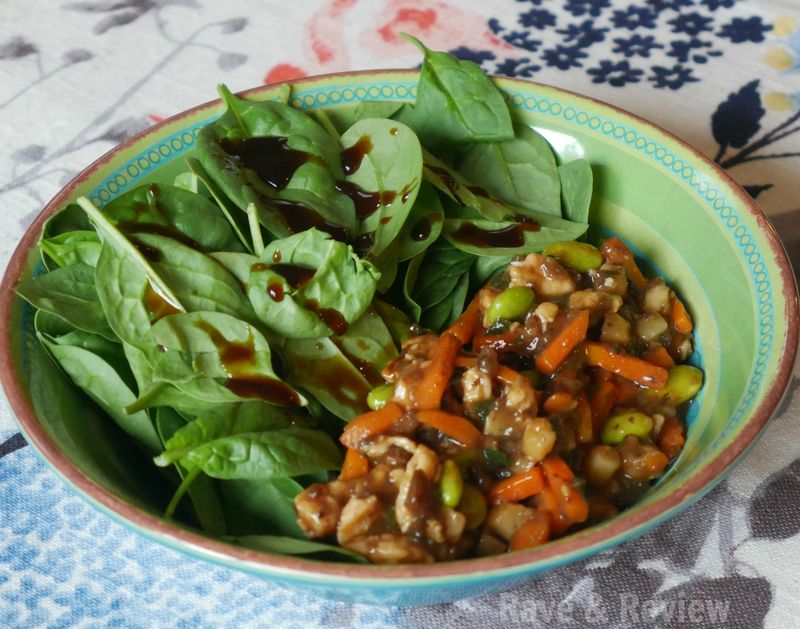
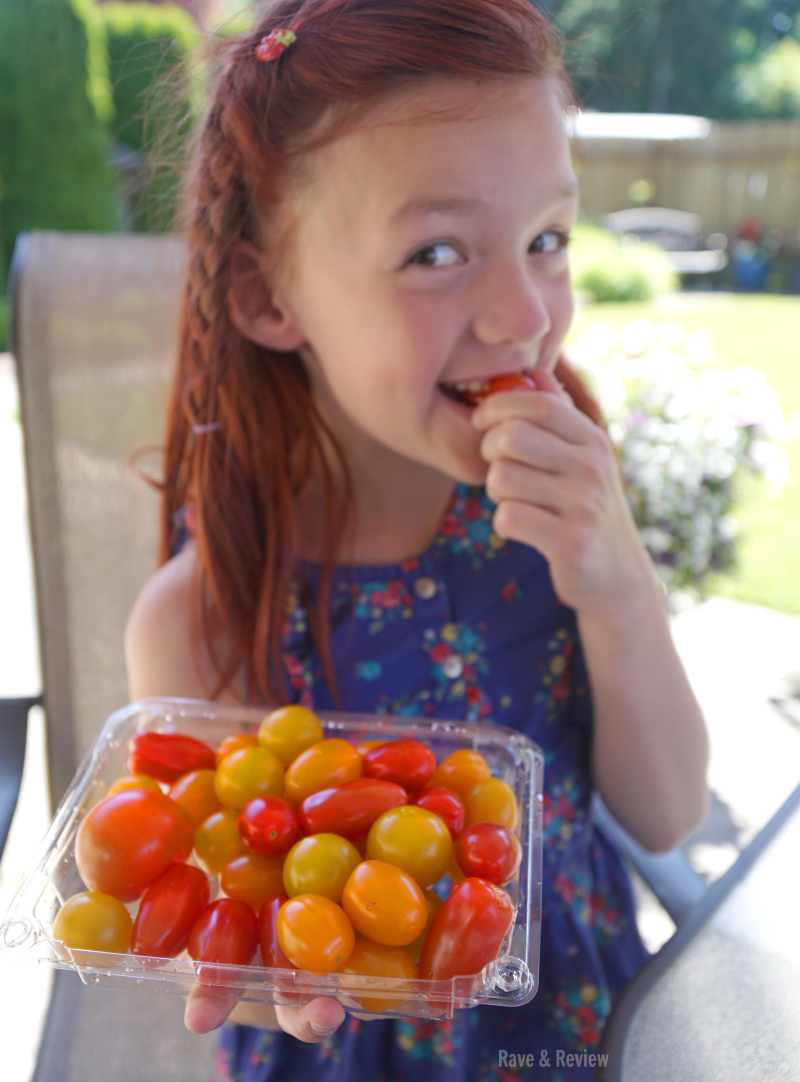
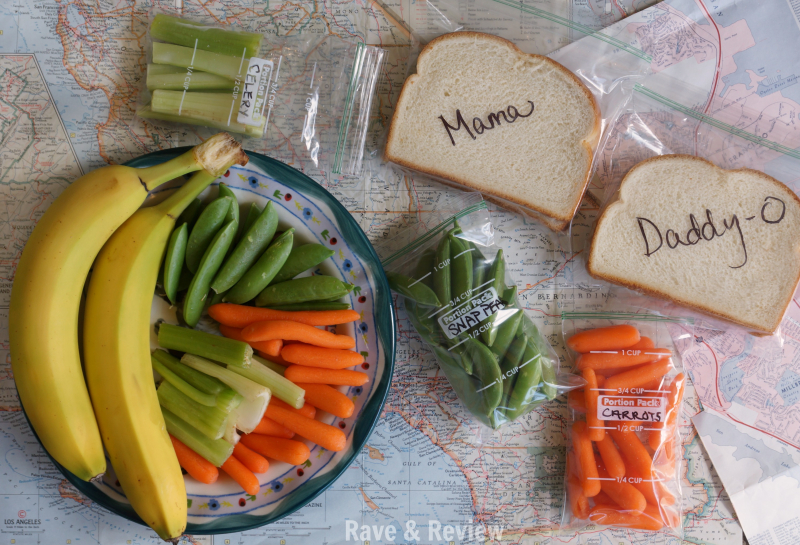

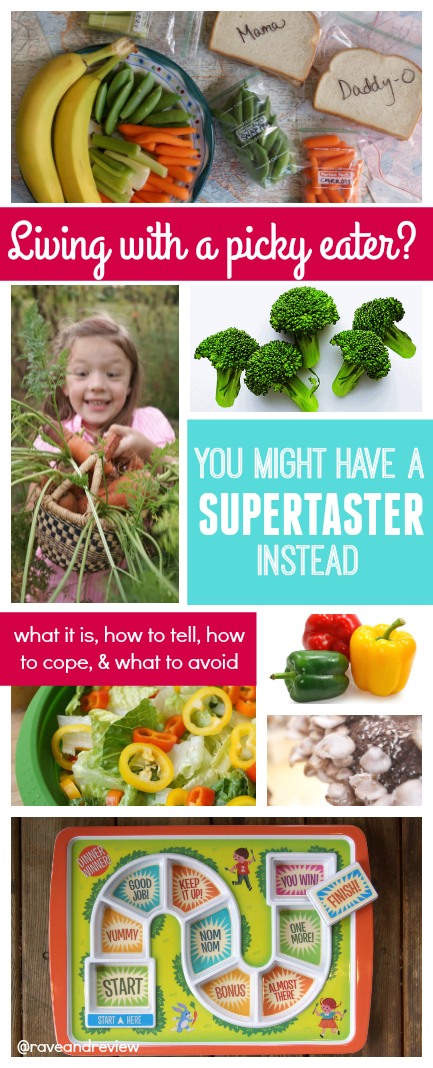
Hmmm, I might have a supertaster
Hello,
I’ve been a supertaster my whole life. I was born in the early 60’s. Around 10 years ago I found out about supertasters. I can say I’m not proud of it but now I’m relieved to know why I don’t like a lots of foods. It’s hard when your at an event where a meal is served and you want eat anything.
I went to a coed prison for under 18 when I was 14 years old. You couldn’t break any of the rules in one of the rules was if you got a plate you had to eat everything on the plate. So I didn’t get a plate I would look and see what food they had but I couldn’t never get a plate. They thought I was doing it on purpose I just didn’t want to break their stupid rule.
This is seriously blowing my mind. Who knew supertasters were a thing??
This is very interesting! I love the plate to have my kids try out and see if they will try different foods. I think we are Supertasters!
I never heard of this before today
I have never heard of a Supertaster before. This was very interesting to read about.
I have a lot of picky eaters in my family! These are very good tips and information to know!
My 58 year old daughter was always a picky eater; found out about 4 months ago that she is a “Supertaster. Explains alot, finally ?
Isn’t that funny? It certainly changes how I approach his “picky-ness”
I am a supertaster for bitterness, and was s nightmare picky eater as a child. I am now a research scientist looking at supertaster genes, and unfortunately the fat/sugar sensitivity is separate to the bitterness one: I hate rocket & Brussel sprouts, but love cake & sweet creamy things. So weight gain is a bit of a problem when I hate ALL salad!
That’s fascinating! My son is slowly becoming able to eat bitter items, but sweets are still very much a no-go
Sarah, I am a 32 year old super taster and eat no veggies. I want so badly to be a healthy veggie eater but every time I try it’s so bad!!! Do you want any? What do you like? I as well do not like the spicy/bitter flavor of ethnic foods which holds me back from life a lot, as well as my wife. Leanne what does your son like at those places?
He also hates spicy of any kind, as well as most bitter foods. It was a definite struggle to get him to eat broccoli and now he’ll do it as a favor. He basically would prefer carrots forever – but they have to be the perfect kind or he won’t be able to stomach them.
Hello Leanne. I am 34 female, and a supertaster. I just wanted to share that I prefer yellow carrots. 🙂
That’s great info – thank you! I’ll try yellow with him and see how it goes.
I am a supertaster and love salads, cucumbers and baby carrots. I do not like the big carrots. I am taking a powder smoothie that is all dehydrated veggies and it is making such a difference. I mix it with other stuff and I find that I am feeling so much better and it doesn’t taste too bad. Maybe your child would like that instead of a battleground of bitter foods. Just a thought.
That’s great to know! My son also doesn’t like big carrots, but baby carrots are fine.
The “baby” carrots in all supermarkets are cut from big carrots. This is true whether or not you buy organic. So that prediluction has nothing to do with being a super taste
However — “baby” carrots are completely peeled. It is possible that when you have tried whole carrots they were scrubbed, not peeled. And the outermost layer of carrot has the strongest, least sweet taste.
Just saying, super tasters who like baby carrots should also like big carrots (provided the big carrots are peeled).
I am a 25 yo and I think I am also a super taster, although I do like most sweet foods and creamy foods – that being said I don’t like a lot of the really sweet fruits because they’re too sweet and I only like green apples (red are too sweet). Grapes and green apples were my first fruits, soon followed by raspberries and lemon/lime (I love sour). I also learned to like broccoli by having it sauteed with balsamic vinegar, which can cut the bitterness down pretty well. Roasting is another great way to cook it – just cover it with some olive oil and a bit of salt and pepper and roast it until it’s crispy. Hope that helps!
Hello Bailey! I am a 34 year old supertaster, and I prefer some Caesar salad dressings. I prefer romaine lettuce, grilled chicken, parmesan cheese is fine, some Caesar dressings are ok – not all but some, you just have to give them a try. I start out with ingredients I prefer, certain brands, I usually choose high-quality ingredients to make sandwiches, other dishes. Initially I tried the Caesar salad from Red Lobster, I had to try it about 10 times before I actually ate a full bite. I had to slowly introduce myself to each ingredient, slowly mixing them together – getting used to their tastes altogether. Eventually, I was able to take that “bite” of mixed Caesar Salad – with a little bit of each element.
I also love sweets. Sometimes, sweets taste too sweet. Other times, it is a perfect creamy balance. I think I was a hummingbird in my past life. LOL. I do not prefer ethnic foods. I loathe spice. I can’t handle spice at all. Pepper is really spicy to me. I prefer white pepper’s flavor – usually incorporated into asian food.
I bit into a hot cheeto once and it literally took my breath away.
I found out I was a supertaster when I was in high school. Our biology teacher gave us the Litmus paper to test our taste. I didn’t realize I was that much different from others. I usually picked the veggies out of fried rice, I didn’t realize people couldn’t taste the intense flavors bursting in their mouth with each bite. I then learned I was unique. I usually just ate whatever I was given regardless of me liking it or not. I’ve learned to eat twinkies and enjoy their bitter and sour elements – I can seriously taste the chemicals in everything and I hate it. I can taste the metallic flavors in everything.
I also prefer to use chopsticks – everything tastes better with the wood element. I am also a huge cheese lover!!! At one point, I wanted to write a book on cheese, but I gave that up.
This is all so fascinating to me! I can’t believe how little information there is out there for supertasters and those that love them. My son is now 10 and still prefers the blandest of bland food, but he’s getting easier because he can pick things out on his own. He even eats soup one ingredient at a time. Noodle in one bite, piece of chicken in another, cooked carrots in the bite he’s forced to take 🙂 My son prefers caesar to ranch and will only eat Romaine lettuce, so that’s nice to hear that’s sort of “normal” with supertasters. One thing have learned is that there is no normal with supertasters – you are all so different in your preferences! My son also hates spice of any kind (except cinnamon, he loves cinnamon) but he also despises sweets. He will eat vanilla ice cream, but that’s about it. Give him a piece of bread instead of cake any day. He also really likes cheese, but only the blander varieties. He hates soft cheese of any kind, and sharp cheeses.
That’s a great tip on the chopsticks! He knows how to use them, but we only get them out when I make ethnic foods. I bet he’d love them all the time, too.
Hi Sarah! I am also a supertaster. Let me know if you need any help with your research, I would love to volunteer or join!!! I helped my friend complete his dissertation for his PhD studies.
I have found a way to make some foods taste better. For brussel sprouts, cut them in halves, steam them for about 20 minutes, place them on a baking sheet, coat with olive oil and McCormick’s “Italian seasoning grinder” and place at the top shelf of your oven at broil temperature for 7 minutes. They come out slightly toasty, and taste really good when cooked this way. I usually steam and season/broil some vegetables together including: green beans, baby carrots, baby red potato halves/quarters (depending on size), squash, zucchini, broccoli (yes broccoli), and brussel sprouts.
I’ve received numerous compliments when serving this vegetable side dish and I came up with it completely on my own. I just slowly incorporated elements of food and flavors that I love, and cooking methods that are tasty – resulting in dishes I enjoy.
I just joined Twitter if y’all are interested in contacting me @KandisFox16, my facebook is currently flooded with requests, but it’s Kristina.Herrera.9461 🙂
I am the exact same way. When you eat certain things and tell exactly what ingredients they contain? When I eat fudge candy, I can tell exactly what ingredients are in it. Do you have foods like that?
This is interesting to me as a 47 year old supertaster (not a great name btw) because while reading this article I was confused since I have zero problems with anything sweet, quite the opposite. And the wikipedia page https://en.wikipedia.org/wiki/Supertaster#Specific_food_sensitivities lists about 25 things (that would make me vomit) at the bottom and none are sweet!
Also, there is a steroid medication called Prednisolone that I have been regularly prescribed over the years that I swear is coated in Propylthiouracil or something, that makes me gag and nearly puke every time… not great when there’s no alternate medication (I keep asking the doctor and pharmacist), I should ask the company to remedy this for people like me by coating it in anything else. For now I wash them down with milk and Ribena (blackcurrant syrup).
Hmm. I have s SUPER picky eater (literally only wants to eat 4/5 things). He gets overwhelmed with the smells of foods and doesn’t like a lot of textures. However, he LOVES sweets, so maybe he’s not a super taster but has some other issue? We’ve been searching for help for years 🙁
He might be just ultra sensitive to certain scents/tastes/textures. My son still hates sweets and he’s now 9, so I’m thinking he’s not going to expand that part of his palette at this point.
Smell and taste go hand in hand. As a supertaster, if I don’t like the smell, I rarely like the flavor.
I am 58 and a supertaster. I have been ridiculed all of my life by well meaning family. Oh, how I hate it. I knew I was born this way but did not find out until 10 years ago that I was a supertaster and it is a REAL THING. My family still thinks this is hooey. But it is real. Please show compassion to your family and friends that have this condition. I would love nothing more than to sit and eat a plate of broccolli, but the smell is enough to send me to the restroom with dry heaves. I don’t even want it to touch my other food. It is REAL! No one wants to be this way. Yes, when food is good, it is like being in heaven! but trying to get enough nutrition into me is really tough. I have to result in taking lots of vitamins and powder smoothies. If you knew your child had diabetes, would you feed them sugar? No you wouldn’t so show compassion to your family members who are supertasters and prepare food they will like as well.
I appreciate your comment! I’ve never met a supertaster (other than my son), so this is all so new to us. In the past years since this was written, we have relaxed a lot and haven’t been forcing him to eat things he doesn’t like. He tried an egg bite once and then promptly returned it to us in a not so pleasant way, so it was clear he wasn’t doing this on person. We have been encouraging trying new foods, but if he says he hates it, we don’t push.
Lori,
I endured a lot of skepticism about my refusal to eat
certain foods in my childhood.
My Mother provided me with a little clue inadvertently.
She told me when I was an infant. I used to spit out
banana baby food. Even when she tried to disguise it
with other foods mixed in.
I went through life with this “Affliction”.
I was an adult male when my uncle was over for a visit.
I offered him something to eat and discovered he was also a supertaster. I hypothesized that this must be
a genetic problem. Many years later I found the Supertaster component to my life.
I have not changed very much over seven decades.
I did force myself to incorporate the dreaded Broccoli
Into my life. We are what we are. I used to tell critical,
or suspicious friends. That a garbage disposal will
devour anything you put in it. And that I was selective.
My husband is a supertaster. He found out in a college class in 1968 when the professor had everyone take a drink of a clear substance o
He had placed in small cups. In the class of about 100 he was the only one to react to a bitter taste. We have been married almost 50 years, and he has gotten more sensitive. I substitute a lot: jicama instead of radish; red or orange peppers instead of green; no pepper seasoning…and so on. I must report for the good of science that he also does not produce dental plaque, and I’ve wondered if there might be a connection.
My husband is a supertaster. He found out in a college class in 1968 when the professor had everyone take a drink of a clear substance
placed in small cups at the front of the class. In the class of about 100 he was the only one to react to a bitter taste. We have been married almost 50 years, and he has gotten more sensitive. I substitute a lot: jicama instead of radish; red or orange peppers instead of green; no pepper seasoning…and so on. I must report for the good of science that he also does not produce dental plaque, and I’ve wondered if there might be a connection.
Avoid cough syrups and menthol cough drops. They are overwhelmingly bitter to a supertaster and will make them feel even worse. Get the gel caps wherever possible.
A lot of those dark leafy greens like kale, spinach and cabbage are disgusting cooked, but perfectly fine in salads or sandwiches. I also prefer butter type lettuce or watercress to American iceberg lettuce which tastes like bitter water.
My biggest challenge as a supertaster has been with leftovers. Any meat when reheated will taste rotten to me, and perfectly fine to everyone else. If I let takeout cool and reheat it, I can’t eat it anymore. Very frustrating. The sole exception has been meat cooked with tomato – like bolognese pasta sauces and in chili, the acidity seems to neutralize whatever makes me heave.
So if you’ve got someone who refuses leftovers at any cost, or absolutely wont eat that cooked spinach .. this might be why.
That’s so great to know! We haven’t run into the cough syrup thing yet {knock on wood}, but he can’t swallow pills yet either. He can’t do cooked greens or dark leaves of any kind, but can do butter lettuce and that’s it {we grow our hydroponically so we can have it year-round}. I wasn’t sure it this was his age or not, so it’s great to hear another perspective. He thankfully will do leftovers, but rarely do they have meat except with spaghetti, which could be the tomato thing you mentioned. He doesn’t like tomatoes in any form other than ketchup {one single brand} and pasta sauce {one specific flavor of a specific brand}. I will definitely keep that in mind when we have leftovers with meat as it’s good to know other’s experiences.
I’m a 41 year old supertaster who is very high on the tastebud spectrum. As someone who dealt with the utter torture that has to be endured going through this life, it’s very difficult to put into words the feelings I had reading this article.
On the one hand, I do appreciate the attempt you’ve made to understand your son and his needs, to some extent. That stated, the way you approach it is just so selfish and insulting and hurtful. This is something I, and other supertasters all struggle with (I’m thankful to have known a few in my life who go through this journey too).
First off, there is no “dealing with us”. Being with a supertaster is very simple and easy. You just respect that they like or don’t like something. Plain and simple. Also, amazingly insulting language like saying we are “picky” or “don’t have refined taste” is so hurtful and untrue. The thing is, we aren’t picky, it’s that things like leafy greens quite literally aren’t food to us. Also, we have the ultimate in refined tastes. We literally taste things you can’t. We have taste buds you don’t have. That’s like saying a deaf person doesn’t have a refined taste in music. People who can’t taste things like PROP or other bitter or awful elements in food…that’s not refined, that’s pure luck. Saying a supertaster doesn’t have refined taste for not eating kale is about the same as saying you don’t have refined taste for not eating dirt.
Another aspect here is the selfish nature of talking about something like when you mentioned going to restaurants. “He isn’t going to take this from us!”. Well, what about what you are taking from him? Why isn’t HE allows to fully enjoy meals? I’m sure that whatever he eats, you can eat too. Why is it fair to expect him to find something at a place that he can mearly choke down or maybe slightly enjoy but yet, you won’t do the same yourself? Go somewhere he can really enjoy food and eat the “bland” food yourself. That’s basically what you are asking him to constantly do, if you really think it through. Your needs matter…his don’t. Your happiness and enjoyment matter…his doesn’t.
Things like this hurt and scar for life. The damage that has been done to me throughout my life in dealing with non-tasters and medium tasters is almost impossible to express. It’s something that literally has to be dealt with 3 times a day, every day for all of my life. If people could actually make an attempt at understanding what supertasters are and just trust them, the world would be better. Empathy shouldn’t be such a difficult thing, but it really seems to be when it comes to food. I don’t know why.
I greatly apologize for the bitterness and anger in the post, but I will admit that reading through your article nearly brought me to tears multiple times. Try and understand that he is your son and this is who he is. You shouldn’t view it as learning to “deal with him” and it would be amazingly helpful if that message was spread to others…as it does normally feel like 75%+ of the world is totally against us.
Meal time was always a misery for me growing up. I hated eating. I am 44 and still struggle with eating vegetables. Learning I am a super taster just a few years ago has allowed me to actually try and eat some veg. But yes, the non-understanding from my non-supertaster family, who forced me to eat food that literally made me gag and retch, has affected me for life. Some days I still just can’t eat a meal, even though I prepared it myself, and I know doesn’t contain any foods I can’t eat.
My son eats just about anything, but doesn’t like carrots (that aren’t chopped small and cooked into a meal). So I prepare salads with each ingredient separate, so that we can each pick what we want in our salad, and if we have carrots as a side dish, I make sure there are enough other side dishes that my son can have a full meal without any carrots.
Hopefully the parents writing this article can find ways to help their son enjoy food, not just tolerate it; and not have to dread meal time.
I am a supertaster. Part of the reason I found out anything about supertasters was when my mouth got extremely salty when I was given an IV in an ambulance more than a decade ago. It’s only gotten stronger with age. Anything bitter is the biggest trouble. I love spicy, creamy, and especially sour foods. Sweet foods I can only consume a small amount before it becomes too sweet, and I have to have a glass of milk between bites to alleviate the sweetness. Salty foods can also overwhelm me and my partner often thinks I don’t salt the food I cook nearly enough. (Better under salted than over imho!)
One thing that I have learned in dealing with bitter foods is that it can become tolerable depending both on how it’s cooked and balancing the food with an acid. I used to severely dislike cabbage, but now one of my favorite foods is braised cabbage in apple cider vinegar, brown sugar, and salt and pepper. Or meat with sauerkraut. Brussels sprouts I’m working on – those are mostly a godawful stink and bitter but I’m hopeful maybe an acid and roasting will someday make them palatable. Broccoli isn’t too bad depending on the cooking and seasoning. Kale, collard greens, and mesclun greens are never going to happen for me no matter how they’re seasoned. Spinach is good if it’s creamed or used in a spinach artichoke dip, while baby spinach can actually be palatable in an acidic dressing (like with spinach strawberry salad). Cilantro makes me want to be sick…I find myself watching cooking shows wondering WHY does it have to be added to everything?! I have at least made a recipe for guacamole with cilantro that has enough acid to taste good to me (bonus my family loves it, too). Beets taste oddly like actual dirt to me. I’m hoping I may be able to stomach more bitter foods someday with patience and the right flavors. Sometimes, comparing the texture and flavor to a food I do like helps me to come to terms with a food I haven’t liked previously.
One of the biggest difficulties I still face with food, however, is with scallions, raw onions, or onions that are any less than translucent and softened when cooked. It has been this way since I was a baby. I despise the scraggly texture of green onions and the pungent flavor and gritty texture of all other raw onions. Even the odor of it unpleasantly burns my nose. If they are completely pulverized into a paste to make some kind of sauce, then I can perhaps eat it so long as that raw, pungent onion doesn’t pack too much of a punch in the dish. Otherwise, I can and will taste even the barest sliver of onion texture in my food and it ruins the dish for me. I lose my appetite. Alas, for this problem, I haven’t found any food I do like to try to get used to either the flavor or texture. There’s nothing like it. For me, eating those compares to someone not peeling off that dried outside layer of an onion and trying to pass it off as edible food.
Another issue I do have is with very oily fish. I’m not sure about how supertasters in particular are affected by this taste, but it has always overwhelmed my senses. Additionally, if a seafood is any less than perfectly fresh, that iodine taste also takes over and makes it hard to consume. I wish it wasn’t the case – I love sushi and fish, but I’m wary of eating it often lest I have to find something else to eat. I am working on this one though. Alaskan wild caught salmon seemed to be much more palatable than other salmon, for instance. It’s hit or miss.
I think a HUGE part of the reason I have these issues with food is not just being a supertaster, but my sense of smell is ridiculously keen. I can literally smell individual ingredients in dishes and identify them correctly. I guess this is great if you eat at a restaurant and want to try to recreate the meal at home if you loved it, but that also means my palate might be too sensitive to an ingredient. It’s worse right now since I’m pregnant, and morning sickness is affecting me although I’m in the 2nd trimester.
Btw…I do have more than one version of some gene that confirms cilantro tastes soapy to me, too. The joys of genetically being sensitive to taste and smell!!! 🥳🥳🤣
This is fascinating, thanks for taking the time to share all of this info. I’m definitely going to save this for reference. Any tips on toothpaste? He can’t do mint of any kind, and he hates bubblegum flavor and even fruit flavors are tough for him. He used to do baby toothpaste okay, but it’s not enough for his permanent teeth. Any tips, tricks?
Have him brush and floss without any toothpaste! He will establish good oral hygiene habits, and won’t have the negative association from a “bad” taste. Once he is older he will probably experiment with different toothpaste products/flavors until he finds one he can tolerate or even like!
You sound like me, and I have a very good sense of smell, too. I find the majority of people over-season their food, so I always have to dial back. Also, don’t get me started on cumin. Bleh. I’m surprised you can do sushi. The wrap alone is way too ocean-like for me. lol
Another supertaster here, 57 years. There are some things that I’ve been able to acquire a taste for, including ice cream, mayonnaise, and some forms of cheese. I’ve gotten myself to where I can enjoy a low level of spiciness, but buffalo wings are still out of range. Broccoli is OK, if it’s cooked all the way, with enough salt, butter and lemon, but brussels sprouts are still awful, even the new less bitter variety roasted with bacon and cheese. Sweets have never been a problem for me, as long as the mouth feel isn’t overly cloying.
Some aversions have been permanent. Raw onions in any form are actually painful, like biting on a lump of pure acid in my food. If they are cut into small pieces, that’s worse, because it’s harder for me to pick them out. Cilantro is just evil, you might as well feed me a Tide pod. Walnuts and pecans are unpleasant lumps of hard bitterness in otherwise lovely baked goods, and I’ve had to skip dessert to avoid them multiple times. I love the smell of coffee, but that’s all the interaction I want to have with it. Beer is horrible, as is dry wine (although I can cook with those, as long as there’s enough other flavors to balance out the bitterness). Radishes, horseradish, wasabi, and anything else that bites back are right out. Sour cream and avocados are too slimy, and cream cheese is like eating glue. (I visited at least one Mexican restaurant where I asked if they could serve me something that did not include cilantro, raw onions, avocado, or too many hot peppers. There wasn’t a single entrée on the whole menu I could eat.)
The upside is that I can pick up on subtle flavors in things. My spice cabinet is huge, I love all the different flavors and smells, and am always on the lookout for any spice I don’t currently have. And I’m almost always up for trying out a new kind of tropical fruit (except durians or noni). And since I generally never order alcoholic drinks, eating out is cheaper!
I so wish I had had this knowledge when I was a child. Meal time was the most miserable time of the day for me. I hated being forced to eat food that just tasted awful all the time. Made extra bad by the fact that my Mom’s favourite veggies were broccoli and cabbage. Most meals were accompanied by frozen mixed veg, containing broccoli. Interesting fact – broccoli taints everything it comes in contact with, so you can’t even just avoid it and enjoy the rest of the veg. It created a massive fear of vegetables in me, and I would actually physically gag, even as an adult if I had to eat veg.
I learned that I was a super tester a few years ago when working in a school science lab. One of he experiments they did involved those papers (with the chemical on them). Absolutely everyone was sticking them on their tongues and saying it just tasted like paper, or maybe just a bit bitter. I was the lab tech, so not actually part of the class, but one of the students asked me to try it too, so I did. Well, it was the most vile thing I had ever tasted, and it stuck around in my mouth all day, no matter how much I ate or drank to try and get rid of it.
Since I learned that I am a super taster, I have trained myself to actually eat vegetables, much to my hubby’s delight, as he likes them. Some days I do still find it hard, but it really has made a huge difference being able to identify where the problem stems from and how to avoid it. Funny enough, though I am teetotal due to religious beliefs, I never ever liked the taste of beer or wine – my parents used to get me to taste it as a teenager, but I couldn’t stand it. And I am a chocoholic, but can’t stand dark chocolate either. And I still can’t tolerate raw onion at all, it is actually painful to eat.
I learned about Supertasters in the past decade. This explained a lot about my tastes, like my dislike, from early childhood on, of black/white pepper (Thank you, Mom, for cooking without it!), radishes, –and hot peppers, when they became integrated into general Minnesotan cuisine in the ? 1980s.
Cilantro arrived then too, in just about all the “Mexican” restaurant meals and many commercial products. It tastes nasty to me but I realize this could result from a different gene, perhaps the one that makes saffron taste like dirty dishwater smells.
Diet soft drinks were unpleasant: I couldn’t drink them, even out of courtesy to a host (since then I learned about the bad health effects). I had to stop chewing gum (to deal with dry-mouth) when the manufacturers switched to artificial sweeteners.
I took some years to get used to broccoli; I also disliked bitter chocolate unless I could drink it with milk. As a teen and an adult, I learned that coffee, strong-brewed tea (high tannin), beer, hard liquor, and dry wine were also on my black list.
I don’t care for very sweet items, but I believe that’s due to my upbringing: my German-born mother reduced the sugar in home-made foods and rationed good-quality chocolate bar pieces (no Hershey or Brach candy in our house!).
But I realize from the article and postings here that I must be at the lower end of the Supertaster spectrum; my heart goes out to all the very taste- and texture-sensitive people. I am grateful I grew up in an ethnic Scandinavian/German culture of moderately flavored foods. I have inherited and assembled a library of tame but flavorful recipes that I can modify to my taste with new flavor discoveries.
Some tips that might help some folks: I have found that sautéing with a little butter seems to mitigate the bitterness in the following green vegetables (maybe a chemical reaction, maybe it overrides the bitterness): bok choy, broccoli, brussels sprouts (cut in halves or quarters), maybe others. If you can tolerate sautéd/caramelized onions, try them with the brussels sprouts.
Brew tea the Chinese way: Depending upon the tannin level, brew the tea leaves or bag in the teapot, and toss the water 1 to 3 times, then brew tea to drink. In a restaurant, or wherever, ask for hot water and a tea bag, then just dunk it 1 to 2 times.
For people who dislike green onions (scallions): I read an article some time ago that warned CUT green onions acquire a soapy taste if they sit for any length of time; that it’s best to cut them just before cooking or serving raw.
Thank you, Leanne, for the article and thank you to all the commenters. I wish you all the best.
I am autistic and very picky eater (I don’t think I’m a supertaster). That plate might not be appropriate for every kid, though. If that plate had been put in front of me as a child, I would have cried every time, and it would have in the long run damaged my self esteem. I’m kind of shaken up just by seeing it! lol. It would have made me feel like a loser right away. I wager that you’re a sensitive enough parent that if your son had had that reaction, you would have found another option, but I am glad it worked in your family’s situation.
I try a new food each year. I take my time. I have to taste it once a month. I’m in my 50s now, and can pretty much find something on the menu anywhere that is healthy that I can eat as ordered. I eat a healthy diet at home. Food is… complicated for some, for sure. I’m glad you’ve helped your son on his journey to healthy nutrition! Discriminating eaters are a challenge for themselves and their loved ones for certain.
Hey y’all, another super taster here. And somehow I got into teaching people how to grow fruits and vegetables for a living. I know that as far as veggies go, it’s mostly brassicas (broccoli, kale, Brussels, etc). and leafy greens (spinach, lettuce, arugula, mustard) that we have issues with. And I want to put this pro-tip out there, many of these vegetables are cold hardy, some down to 22 degrees Fahrenheit and even lower (there’s one variety of arugula that can survive down to 7 degrees). And that’s important because when these vegetables freeze, especially when they freeze a few times, they become more sweet and less bitter! Some of the starches inside of them are converted into sugars which acts as a natural antifreeze for their cells.
I couldn’t eat kale or Brussels or spinach or broccoli for the longest time. And then I tried these vegetables grown locally in the fall, and my mind was entirely changed. If you live somewhere where the falls and winters get cold, try some locally grown veggies in the fall and early winter and see if they suit your palate better.
Hey y’all, another super taster here. And somehow I got into teaching people how to grow fruits and vegetables for a living. I know that as far as veggies go, it’s mostly brassicas (broccoli, kale, Brussels, etc). and leafy greens (spinach, lettuce, arugula, mustard) that we have issues with. And I want to put this pro-tip out there, many of these vegetables are cold hardy, some down to 22 degrees Fahrenheit and even lower (there’s one variety of arugula that can survive down to 7 degrees). And that’s important because when these vegetables freeze, especially when they freeze a few times, they become more sweet and less bitter! Some of the starches inside of them are converted into sugars which acts as a natural antifreeze for their cells.
I couldn’t eat kale or Brussels or spinach or broccoli for the longest time. And then I tried these vegetables grown locally in the fall, and my mind was entirely changed. If you live somewhere where the falls and winters get cold, try some locally grown veggies in the fall and early winter and see if they suit your palate better.
I also bet freezing fresh veggies from the store at home for a bit before cooking and eating them will have a similar effect.
Erin, thank you so much for commenting – this is fascinating! My son only likes frozen broccoli, but I never knew that this was a thing! I’m going to look into locally grown in the fall and see how that goes, too.
I noticed during pregnancies that my sense of smell and taste multiplied by a hundred! I so often thought “whoa! turn it down!” when I detected spices or herbs, and strong veg like turnips or even the exhaust from a restaurant nauseated me. Normally, when not pregnant, I find cilantro tastes like soap, and zucchini often tastes like bad breath (sorry for the ‘eww’).
My one (grown) kid (and now her daughter) seem to have super sensory smell, taste, vision, and hearing, so that has made life interesting. I regret that our ignorance and misunderstanding resulted in trying situations for our whole family. We survived that and still love one another, and do what we can to try to make life more bearable. At least my daughter understands her child and knows how to direct her in eating healthy within her preferences, and shares her love for fancy teas and candies with her.
I can only eat one vegetable, potato (which is possibly the least nutritious – starch and no chlorophyl. If potato is green Do Not Eat It) and a handful of fruits under certain circumstances… part of the reason for this extreme condition is the way family would force me to eat things like peas, carrots, onion etc. always making me throw up… then they would get angry at me like I was the problem. So there are many things I have never tried and probably never will because it pushed my taste problems (the word and concept of supertasters didn’t exist in the 70s and 80s… https://en.wikipedia.org/wiki/Supertaster#Propylthiouracil) into fear, trauma and phobia of most foods… which is likely to lead to health problems even with supplements…
But aside from that I want to mention to parents of supertasters that there can also be the possible social/relationship hurdles ahead when it comes to attempting to explain to people how and why we can’t eat certain foods… rarely do I mention my situation to people because it is usually met with a complete lack of understanding, even ridicule sometimes. For example, if I say I can’t eat vegetables (particularly unwise to all the vegans & vegetarians I meet everywhere these days – I may as well be saying: I kick puppies & kittens) because they’ll make me vomit… I usually get: So you’re a meat-atarian, HaHa. or You’re going to die young from bowel cancer! Sheesh… I wish I hadn’t mentioned anything – So now I try not to bring it up… Once I get to know someone better, and in a one on one conversation (never a group) after asking what are all the things you can’t eat I can then explain by showing them the list on Wikipedia. Sometimes I still have to spell out the situation by saying: Well that list of things you just told me you despise is like most foods for me, or like trying to put a piece of raw offal in my mouth! It’s not a fun chat to have, but if I want to eat out with that person I’d rather have that ‘controlled’ conversation before sitting down with them in a restaurant I’ve never been holding a menu that has names of dishes without ALL the included ingredients listed.
Also, having read all the comments above like one of Elaine Henson’s where she said: “One of the experiments they did involved those papers (with the chemical on them). Absolutely everyone was sticking them on their tongues and saying it just tasted like paper…” leads me to question how it can be that 25% of the population are supertasters (as stated on the Wikipedia page and elsewhere) because in the many conversations I’ve had since I first heard of the term and immediately identified myself as a supertaster where hardly anyone had similar experiences with bitter foods and drinks?!
It’s not like mushrooms, carbonated water, coffee, beer, olives, anise, licorice etc. etc. are rare or unusual things to come across in life and notice them to be disgusting when everyone else is raving about them. But, whatever.
Anyway, to sum up what I said so verbosely above…
With the benefit of knowledge gained in the last few decades that we older supertasters in our 40s & 50s never had growing up, it might be worth considering a little strategy or coaching of some kind by parents of young supertasters to be able to explain themselves to their peers and teachers etc. on when and how for them to explain the situation to achieve the best outcome.
…I didn’t write that very well (I’m really tired) but I hope you get the idea!?
I am a 73 yo woman who recently read an article about supertasters and finally discovered I am not a picky eater! It’s been a challenge all my life and is a “joke” to friends and family. Many times I’ve been embarrassed or shamed for this condition. Now I can defend my dislikes without being considered picky.
My grandson said, “Nana you’re a supertaster when he was about 6-8 years old. He said his friend was a supertaster. I had never heard of it so I googled it and it’s a real thing! There was even a test to tell if you are one, and I am! That explains why I have always been a picky eater and have such a sensitive palate. I prefer my food plain (no butter or salt on corn on the cob or baked potato, etc), I don’t like sweet and savoy flavors together, and I can’t eat spicy hot AT ALL. Not even black pepper. But boy do I have a sweet tooth!!
I am a super taster at the very high end of the scale. I went through childhood before this was a known thing and I’m so grateful I didn’t have parents who made me eat things I hate. I just didn’t have the option of eating something else, so I was a thin kid. I do MUCH better eating my vegetables in small pieces, like a chopped salad, so I don’t end up with an entire mouthful of one thing. I agree with the other person who mentioned baby carrots being a whole lot better than big, bitter carrots. The sensation of slime, like carrageenan added to dairy is absolutely inedible! Many health food stores have options without it that may make it easier to get kids to eat dairy products.
And , yes, sweet and savory foods together are nauseating!